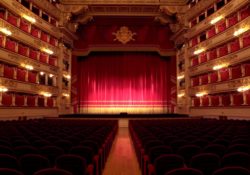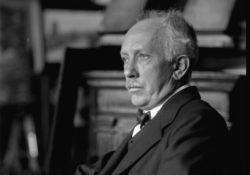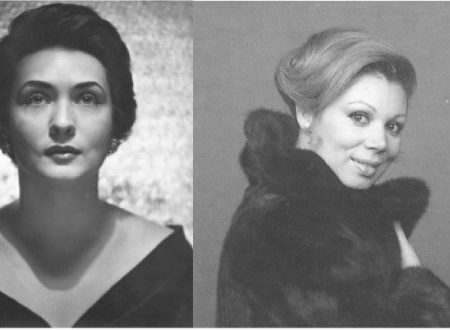Singers on Singing: Sophie Koch
Sophie Koch, one of today’s most outstanding and sought after mezzo-sopranos, has won special distinction and admiration for her vocal and stylistic mastery and also her subtle, imaginative and powerful acting in the vastly differing stylistic worlds of German and French opera as well as French opéra-comique. She first came to international attention in 1997 and 1998 when, after commencing her career in her native country, France, she made triumphant appearances at the Royal Opera House Covent Garden as Rosina in Rossini’s Il Barbiere di Siviglia and Dorabella in Mozart’s Cosi fan tutte, and at the Semperoper in Dresden as Der Komponist (The Composer) in Strauss’s Ariadne auf Naxos. By the time of her subsequent acclaim as Octavian in Strauss’s Der Rosenkavalier at the Vienna State Opera, her status had been sealed as an artist with a rare equal command and understanding of the particularly different musical worlds she inhabited. As her career developed, she steadily expanded her repertoire from lyrical to dramatic roles while still sometimes continuing to sing lyrical repertoire – witness the remarkable range of notable recent triumphs as Charlotte in Massenet’s Werther, Fricka in Wagner’s Der Ring des Nibelungen, and the title role in Thomas’ Mignon.
In 2011 Sophie Koch recorded an interview in which she discussed the trajectory of her career, spanning from her background as a student of a particularly specialised and now rare-to-find French schooling up to her later artistic development in strikingly different musical realms. Some segments of this recording were unfortunately lost through unforeseen damage, and so an extra telephone interview was subsequently recorded to fill in some of the missing parts. The interview published here therefore commences in print, below, as a transcript of that telephone interview, and then continues in audio from where the text finishes. The audio section also concludes abruptly without a proper ending, as the final segment was damaged, however as there is so much of greatly important value in Sophie Koch’s conversation, we are retaining all that we have in its incomplete form here.
–Jon Tolansky
My parents used to sing in a choir, just for leisure, and when I was a little girl I used to go with them to rehearsals, but there was no music in the home, other than some opera records my father sometimes used to listen to. In fact I was not orientated to singing in an active or ambitious way early on, even though the first time I actually sang in an opera was in Wales when I was just 13 years old. Since the age of 11 I had been singing in a choir at school, and my music teacher had a connection that gave me an opportunity to take part in an international summer school in Monmouth where I appeared in the opera Alice in Wonderland by Mervyn Birch. The premiere was in 1981 and the following year it was repeated in France, near Lyon. But that was an isolated event in my life at that time. The real musical inspiration came through my luck to meet the New Zealand born pianist and teacher Vera Moore. She became very important to me as my teacher and mentor in a really very special way. She taught me not only music but also poetry and philosophy among several other subjects. She also brought a remarkable tradition to me. She had been taught in England by Leonard Borwick, who had been a pupil of Clara Schumann, and she had personally known an extraordinary list of people: painters Piet Mondrian and Ben Winifred Nicholson and musicians Claude Debussy and Alfred Cortot among many others! So this was a fantastic background that she brought to me, and her lessons were very individual – far from the usual kind of tuition. She was altogether a very remarkable woman, and I remained in contact with her for around 20 years.
Although she said I was talented, I never felt at home playing the piano, and that is why I did not work at my technique. On the rare occasions that I had to perform in public I felt horrible. That apart, I had very conventional though interesting studies: philosophy, history, literature etc, and then when I was 18 I decided to do a course in jazz singing at a summer school. I used to listen to a lot of jazz with my father and I loved it very much, I was absolutely fascinated by this modern music, so I wanted to study it. In fact the course combined jazz and opera – Purcell’s Dido and Aeneas was on the bill. And it was this unplanned experience with the Purcell work that really made me think I would like to sing more opera. I was very attracted to the dramatic and theatrical aspect. I decided I did not want to pursue jazz, and instead I auditioned to sing in the Sorbonne University choir, but they would not take me because I thought I was a soprano but they said I did not have the good high notes they needed. They said “work on your high notes and come back next year”. I was very upset, and it was then that my mother said “well you should take singing lessons” – which I did, and that is how my future career as a singer was set in place.
There were two people who now became absolutely vital to me. I was strongly affected by Christa Ludwig’s singing, and so I went to see her for consultation. She gave me great encouragement and valuable advice and that led me to audition for the Opera School at the Bastille Opera in Paris. They took me on, but only for a six months arrangement, as I was not accepted into the young artists’ scheme. I realised this was because I needed to spend more time on my technique, and so I enlisted as a student at the Paris Conservatoire. It was there that my teacher was someone very special indeed, the celebrated soprano, Jane Berbié.


